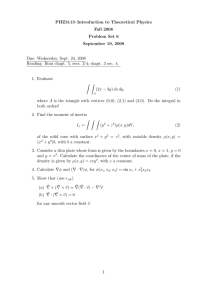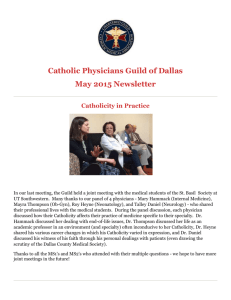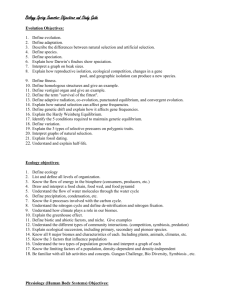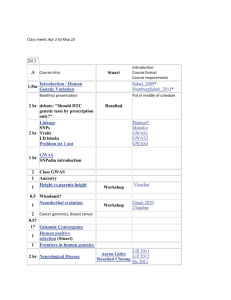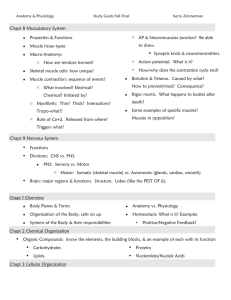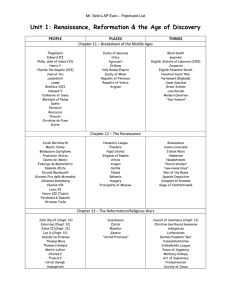FOR207 – Introduction to Economics Fall 2013 Tu/Th 8:00 – 9:20
advertisement
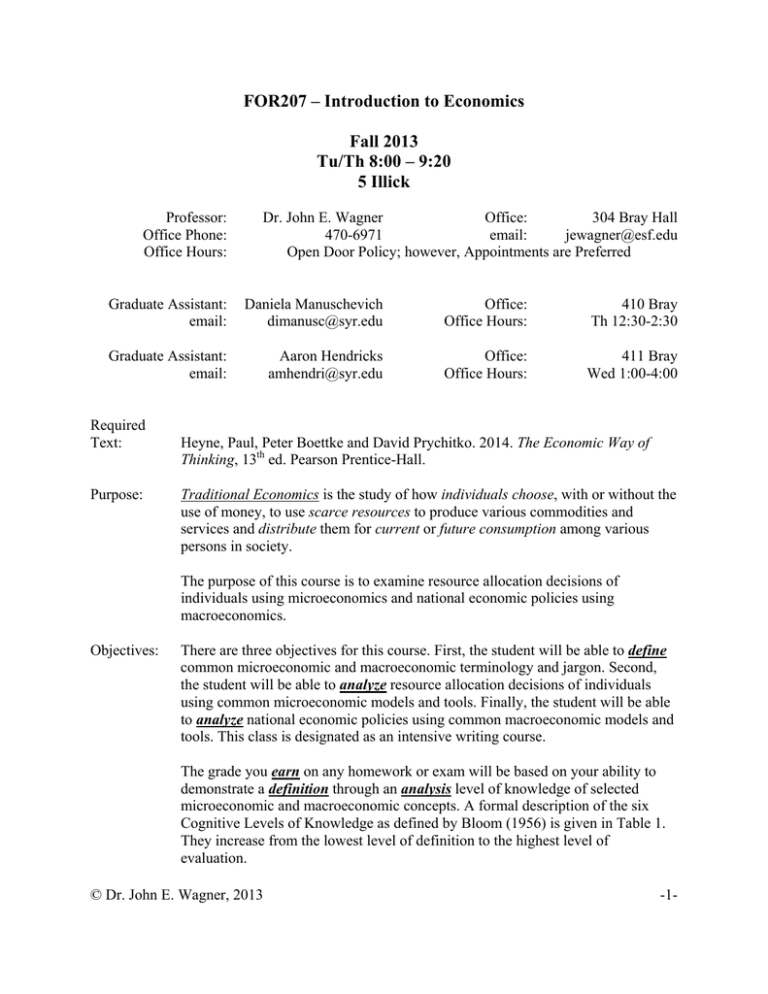
FOR207 – Introduction to Economics Fall 2013 Tu/Th 8:00 – 9:20 5 Illick Professor: Office Phone: Office Hours: Dr. John E. Wagner Office: 304 Bray Hall 470-6971 email: jewagner@esf.edu Open Door Policy; however, Appointments are Preferred Graduate Assistant: email: Daniela Manuschevich dimanusc@syr.edu Office: Office Hours: 410 Bray Th 12:30-2:30 Graduate Assistant: email: Aaron Hendricks amhendri@syr.edu Office: Office Hours: 411 Bray Wed 1:00-4:00 Required Text: Purpose: Heyne, Paul, Peter Boettke and David Prychitko. 2014. The Economic Way of Thinking, 13th ed. Pearson Prentice-Hall. Traditional Economics is the study of how individuals choose, with or without the use of money, to use scarce resources to produce various commodities and services and distribute them for current or future consumption among various persons in society. The purpose of this course is to examine resource allocation decisions of individuals using microeconomics and national economic policies using macroeconomics. Objectives: There are three objectives for this course. First, the student will be able to define common microeconomic and macroeconomic terminology and jargon. Second, the student will be able to analyze resource allocation decisions of individuals using common microeconomic models and tools. Finally, the student will be able to analyze national economic policies using common macroeconomic models and tools. This class is designated as an intensive writing course. The grade you earn on any homework or exam will be based on your ability to demonstrate a definition through an analysis level of knowledge of selected microeconomic and macroeconomic concepts. A formal description of the six Cognitive Levels of Knowledge as defined by Bloom (1956) is given in Table 1. They increase from the lowest level of definition to the highest level of evaluation. © Dr. John E. Wagner, 2013 -1- Note: To demonstrate an analysis level of knowledge, you will have to use definition, comprehension, and application. Table 1. Bloom’s Cognitive Levels of Learning§ Bloom’s Cognitive Levels Activities Knowledge Remembering facts, data, terms, concepts, definitions, principles; Memorize and Recall Comprehension Explain, predict, interpret, infer, summarize, translate, give examples of the meaning of material to an intelligent person with no formal training in economics Application Apply, solve, show make use of, modify, demonstrate, compute to problems unlike those described in class Analysis Breakdown material into component parts to describe, explain, and interpret interrelationships; compare & contrast Synthesis Produce something new or original from component parts, design, construct, develop, formulate Evaluation Make a judgment based on a pre-established set of criteria, appraise, evaluate, justify, judge § Bloom, B.S., ed. 1956. Taxonomy of Educational Objectives, Vol. 1: Cognitive Domain. McKay, NY. I will provide you with in-class examples and exercises of how this is done. This skill will be very useful in answering exam questions. Economic Terms: Exams: Since you need to be able to define the jargon and terms that economists use and to be able to explain these concepts to an intelligent person with no formal training in economics, my advice is to create a glossary of economic terms. There are 2 (two) Midterm exams each worth 100 points and 1 (one) Final exam worth 200 points. In addition to covering the material from the last 5 weeks of class, the final exam will also cover material from the two midterm exams. You need to bring your own calculator to the exams. NOTE: A cell phone will not be allowed to be used as a calculator. NOTE: You may share calculators only after they have been given to myself or the GA to show us that you have cleared any and all memory. This will take time away from you working on the exam (an opportunity cost). Thus I would advise that everyone bring their own calculator. You may come into discuss the grading of the exams; however, I do reserve the right to re-grade the whole exam. Do not come into my office if you just want to argue or quarrel uncivilly about the exam. This is a losing proposition. Quizzes: Up to 5 (five) unannounced quizzes may be given during the semester. Each quiz © Dr. John E. Wagner, 2013 -2- is worth 20 points. You cannot redo or makeup any quiz. These quizzes are used to help me determine if you understand the material presented. In addition, they are used to help you prepare for the examinations. Homework: Various homework sets will be assigned during the semester. The work you turn in must be done in a professional manner. You may work with others on these homework assignments; however, the final product you turn in must be your own. In other words, do not just copy someone else’s work. The penalty for this type of plagiarism is 50% of the grade you receive. Note: Plagiarism is a violation of the student code of conduct and can result in severe penalties. Homework assignments are structured differently than exam questions. This is done on purpose. You have more time to answer homework assignments than exam questions and thus you can spend more time demonstrating an analysis level of knowledge (see Table 1). Exam questions will focus primarily on definition and comprehension (see Table 1). Rules for Turning in Homework: 1. Homework is due at the start of class and will be collected by the Graduate Assistants. If the homework is not turned in at that time it will considered late by 1 (one) day. The penalty for turning homework in late is 50% per day for each day late, including any extra credit. 2. No electronic copies of the homework will be accepted. 3. If you turn in homework late, the homework must be physically given to one of the two Graduate Assistants either during their office hours or by appointment. 4. Do not hand in homework to Dr. Wagner. Class Notes: I will use PowerPoint slides to present the material. A booklet of the PowerPoint slides may be purchased from the business office. The PowerPoint slides will also be available on Blackboard. Having the PowerPoint slides is not a substitute for coming to class. Some of the material I will present in lectures is not in Heyne et al. (2014). You will however, be responsible for this material on tests, quizzes, and homework. I reserve the right to change my PowerPoint slides as I see fit. Attendance and Class Participation: Class attendance is vital. Absences, for any reason, do not relieve the student of the responsibility for assignments and lecture materials covered during the absence. Evidence shows that those who attend and participate in class discussions – on average – do better than those that do not. If you encounter a situation beyond your control in which you will be missing three (3) or more days © Dr. John E. Wagner, 2013 -3- of class, you can contact the Office of Career and Counseling Services (110 Bray, 315-470-6660, Fax: 315-470-4728) and they will contact all your instructors for you. Supportive documentation may be required. Email: I will email you information using your SU student email address periodically. Therefore, it is your responsibility to check your SU student email. Final Grade: The final grade is based on the following weighting: Final Exam 1st Exam 2nd Exam Homework & Quizzes 30% 25% 25% 20% 100% Total The final grade will be calculated as follows: Grade A A− B+ B B− C+ C C− D F Range 100% - 95% 94.999% - 90.000% 89.999% - 86.667% 86.666% - 83.334% 83.333% - 80.000% 79.999% - 76.667% 76.667% - 73.334% 73.333% - 70.000% 69.999% - 60.000% 59.999% - 0% End of Course Survey As the end of the course survey provides me with useful information, I will use the following incentive system: Class Participation Rate Greater than or equal to 50% Greater than or equal to 80% Greater than or equal to 90% Increase in Your Final Grade Percent 0.5% 1.0% 2.0% The survey will close the day after the final is scheduled. Student Support Services: If you are having difficulties, missing classes, or personal problems, as noted in the ESF Student Handbook, there are offices at both ESF and SU available to provide academic support, as well as career, and personal counseling. The ESF Office of Career and Counseling Services, 110 Bray Hall, 470-6660, can direct © Dr. John E. Wagner, 2013 -4- you to the proper source of help. Confidentiality is assured If you experience family or heath emergencies, which will interfere with your ability to succeed in this or other courses, call the ESF Office of Career and Counseling Services (315-470-6660). This office can give official endorsement to your need for accommodation and will also contact all your class instructors for you, should such an emergency require you to be absent from campus. ESF Student Handbook: A PDF version of the ESF Student Handbook can be downloaded from http://www.esf.edu/students/handbook/. This handbook serves as an official guidebook for ESF students. It outlines many of ESFs policies and services such as Codes of Student Conduct, Academic Policies, and Academic Grievance Procedures, etc. The Codes of Student Conduct spell out a student’s rights as well as responsibilities. Inappropriate behaviors that disrupt the classroom learning environment will not be tolerated. ESF Judicial Handbook: A PDF version of the ESF Judicial Handbook can be downloaded from http://www.esf.edu/students/handbook/. This handbook outlines the policies, processes, and procedures of ESFs judicial system. It includes such topics as Philosophy of the Code, Student’s Rights/Responsibilities, and Code of Student Conduct, etc. Student’s Rights/Responsibilities spell out appropriate and inappropriate behaviors. Inappropriate behaviors that disrupt the classroom learning environment will not be tolerated. Observing Religious Holy Days: Please notify me as early as possible if any scheduled exam or homework assignment due date conflicts with observing a religious holy day. We will work with you to set up alternative times to take exams or turn in homework assignments. Cell Phones, Beepers Etc.: All cell phones, beepers, pagers, and similar electronic devices must have the ringer turned on vibrate. The only acceptable use of your electronic devices during class is to receive emergency messages. Texting friends, surfing the web, and listening to music, etc. do not constitute an emergency and will not be tolerated. Class Video or Audio Recording Students are prohibited from recording classes using any medium. Policy: © Dr. John E. Wagner, 2013 -5- 2013 Date 27-Aug 29-Aug 3-Sep 5-Sep 10-Sep 12-Sep 17-Sep 19-Sep FOR207 Lecture Schedule Day Week Lecture # Tue 1 1 Thur 2 Tue 2 3 Thur 4 Tue 3 5 Thur 6 Tue 4 7 Thur 8 24-Sep Tue 26-Sep 1-Oct 3-Oct 8-Oct 10-Oct 15-Oct Thur Tue Thur Tue Thur Tue Tue Thur Tue Thur Tue Thur 19-Nov Tue 21-Nov Thur 3-Dec Tue 5-Dec Thur ‡ Homework Introduction Production Function Demand Supply ‡ Demand & Supply (Extra Credit) 9 Demand and Supply Heyne et al. Chapt 5 & 6 6 10 11 Demand and Supply Profit and Loss 1st Midterm Exam Profit and Loss Price Searching Price Searching Heyne et al. Chapt 5 & 6 Heyne et al. Chapt. 7; pgs. 109 – 115 7 8 9 24-Oct Thur 29-Oct 31-Oct 5-Nov 7-Nov 12-Nov 14-Nov Readings Heyne et al. Chapt 1 Heyne et al. Chapt 1 Heyne et al. Chapt 2 Heyne et al. Chapt 2 Heyne et al. Chapt 3 Heyne et al. Chapt 3 Heyne et al. Chapt 4 Heyne et al. Chapt 4 5 17-Oct Thur 22-Oct Tue Topic The Economic Way of Thinking The Economic Way of Thinking Efficiency, Exchange, and Comparative Advantage Efficiency, Exchange, and Comparative Advantage Substitutes Everywhere: The Concept of Demand Substitutes Everywhere: The Concept of Demand Opportunity Cost and the Supply of Goods Opportunity Cost and the Supply of Goods 10 12 13 14 13 14 Heyne et al. Chapt. 7; pgs. 109 – 115 Heyne et al. Chapt. 8 Heyne et al. Chapt. 8 ‡ 15 Competition and Government Policy Midterm Course Evaluation Heyne et al. Chapts. 9 16 Competition and Government Policy Heyne et al. Chapts. 9 17 Externalities Heyne et al. Chapts. 10 and 11 18 19 Profit and Loss Price Searching Competition and Government Policy ‡ ‡ Externalities ‡ Heyne et al. Chapts. 10 and 11 Heyne et al. Chapt. 13 20 21 22 Externalities The Overall Performance of Economic Systems 2nd Midterm Exam The Overall Performance of Economic Systems Employment and Unemployment Employment and Unemployment 23 24 25 Money Monetary Policy Fiscal Policy Heyne et al. Chapts. 14 and 15 Heyne et al. Chapts. 14 and 15 Heyne et al. Chapts. 14 and 15 26 The End 11 12 ‡ Heyne et al. Chapt. 13 Heyne et al. Chapt. 13 Heyne et al. Chapt. 13 Performance of Economic Systems (Extra Credit) Employment and Unemployment ‡ † Money, Monetary and Fiscal Policy, The End † Opportunity Cost (Extra Credit) Check the class web page or class notes book for additional required readings. † Due the day the final exam is scheduled. © Dr. John E. Wagner, 2013 -6-
